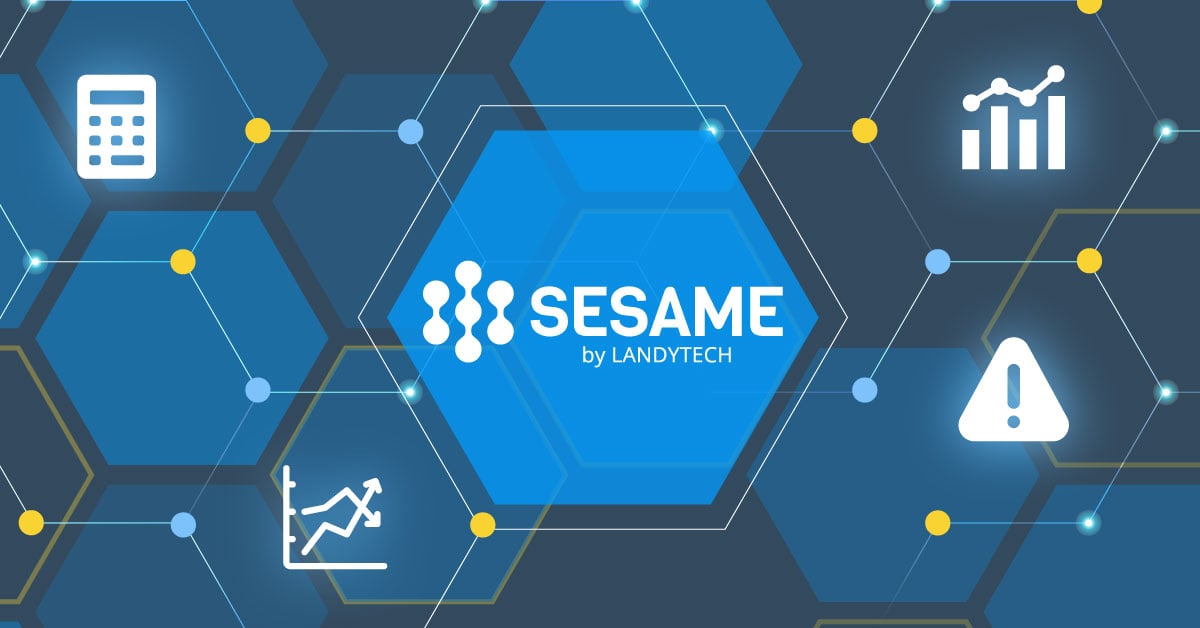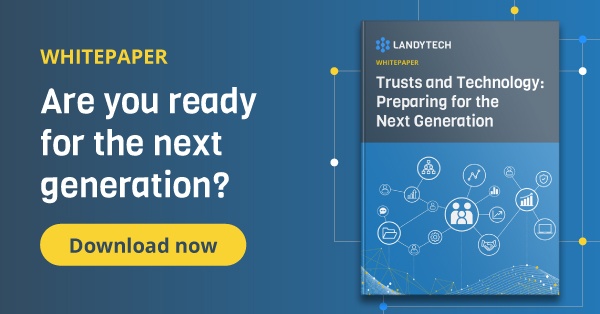Written by Landytech
8 Aug 2023Trustees have a core fiduciary duty to act in the best interests of their beneficiaries. In order to do so, they must gain an understanding of their long-term goals and aspirations. This is particularly important when it comes to investable assets.
Working with clients and investment managers, trustees construct an investment policy statement outlining performance objectives, reference currency, time horizon, risk profile, liquidity needs, any restrictions, and any additional information that will be important to the overarching strategy.
To ensure that wealth is being preserved and enhanced in line with their fiduciary duty, it is vital that trustees monitor their investment managers, implement independent control measures, and regularly evaluate performance and risk levels.
But to do this requires near real-time portfolio data, when most trustees are reliant on static reports from investment managers and consultants, creating a number of obstacles. Here are the five largest ones when it comes to monitoring trust investment portfolios.
1. Timely data
There is a case that timely data sourcing underpins all the wider challenges with trust investment monitoring. Data is the foundation on which trustees review performance, manage risk, scrutinise investment managers, create balance sheets and reports, and build book-keeping efficiencies.
With trustees often forced to wait up to 6-8 weeks after quarter end to receive reports from consultants or investment managers, this data is not likely to reflect the latest market movements, making it difficult to take decisive action on the latest position of the portfolio.
The main data challenge stems from many trustees not receiving automated data feeds directly from a client’s banks and custodians, meaning they cannot establish their own view of transactions and positions and create a consolidated view of a client's holdings on a t+1 basis. Such timely data can form the basis of portfolio analysis, risk management, and wider manager reviews, without having to wait to receive reports from consultants or investment managers.
When partnered with an alerts system, t+1 data directly from custodians can also enable trustees to flag IPS breaches to investment managers directly, as they occur.
2. Missing IPS breaches
Once trustees have selected an investment manager and investment policy statements have been drafted, many are reliant on the quarterly reports from managers or consultants to highlight or determine for themselves whether there has been any IPS breaches in the period. This can lead to delays in rectification and, in the worst cases, IPS violations being missed altogether.
Trustees need a system to monitor portfolios against the agreed IPS, to ensure that the investment manager is not significantly deviating from their mandate by, for example, investing in restricted financial instruments or companies, increasing exposure to equities by more than agreed, or unilaterally increasing the portfolio risk level.
3. Unable to scrutinise investment managers
As market turbulence increases, trustees will need to have greater awareness and involvement in what their investment managers are investing in, and the methodology being used. They will have to regularly assess their investment managers and not hesitate to question performance when necessary. Trustees should have access to data that allows them to quickly answer the following questions:
- Is performance in line with any pre-agreed benchmarks?
- Has the investment manager made any hazardous or speculative investments?
- Does the strategy still suit the client’s risk profile?
- Is the portfolio meeting income and growth requirements?
- Is it being achieved in the required time frame?
- Are all investment restrictions being adhered to?
4. Managing data independence
When it comes to receiving investment performance information from consultants or managers directly there are inevitably questions around the impartiality of managers’ self-reported information. Although they are regulated and they know you have a fiduciary duty, it does not mean their data is always completely correct. That means trustees are under pressure to access independent data. By connecting directly with banks and custodians, trustees are no longer reliant on self-reported performance data, they are instead able to replicate whole portfolio structures from the ground up using actual market data, line-byline, for a truly independent view of portfolio
performance.
5. Consolidating reports across multiple managers
Where trustees receive multiple reports from consultants or directly from investment managers, it can be difficult to consolidate this information to create a holistic view of the trust’s performance. That only adds to the challenge, adding little room for independent oversight and analysis of investments. It is also unlikely that performance and risk analysis in these reports would be decomposed to single holdings, for a detailed view of drivers and detractors.
The future of trust investment monitoring
When it comes to receiving investment performance information from consultants or managers directly there are inevitably questions around the impartiality of managers’ self-reported information. Although they are regulated and they know you have a fiduciary duty, it does not mean their data is always completely correct. That means trustees are under pressure to access independent data. By connecting directly with banks and custodians, trustees are no longer reliant on self-reported performance data, they are instead able to replicate whole portfolio structures from the ground up using actual market data, line-byline, for a truly independent view of portfolio performance.
Related Content

Why Trustees Need to Unlock the Power of Interoperable Data
The role of a trustee is a complex one, and as the world grows increasingly digital, managing assets and ensuring the proper administration of trusts can be an arduous task. In the face of fierce industry competition, trustees are looking for ways...
.jpg)
4 Reasons Why Trustees are Building Family Office Services
Trustees have a great opportunity to strengthen their relationships with their clients while enhancing their own competitiveness. Find out how.
In today’s unpredictable world, trustees must constantly adapt to change – whether that’s due to...

Why Sesame Data is the Future of Trust Bookkeeping & Investment Monitoring
Trustees are under more pressure than ever. Industry consolidation continues apace and competition for business has never been fiercer. All of this at a time where client investment data volumes are mushrooming, requiring more staff than ever, if...




